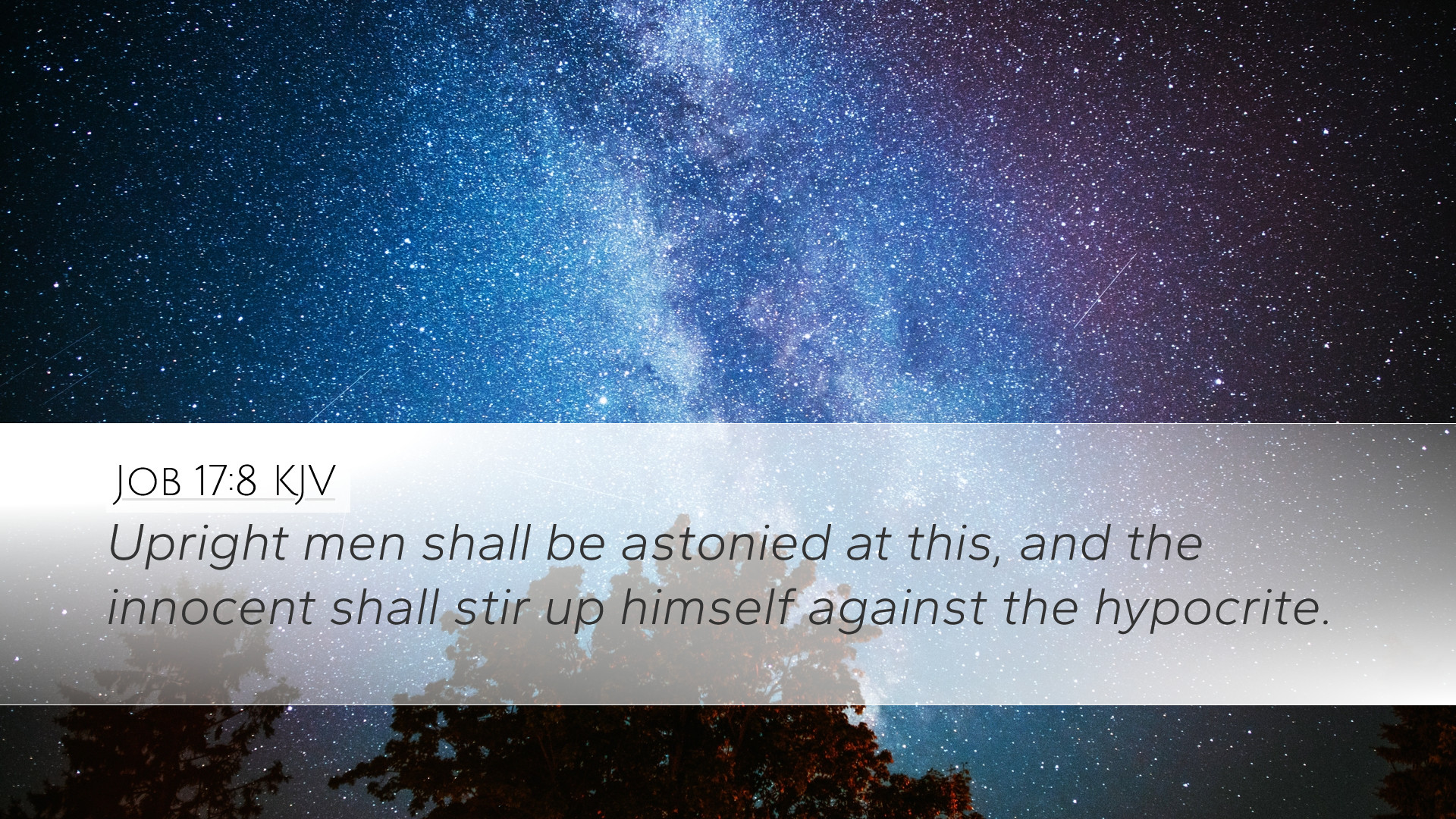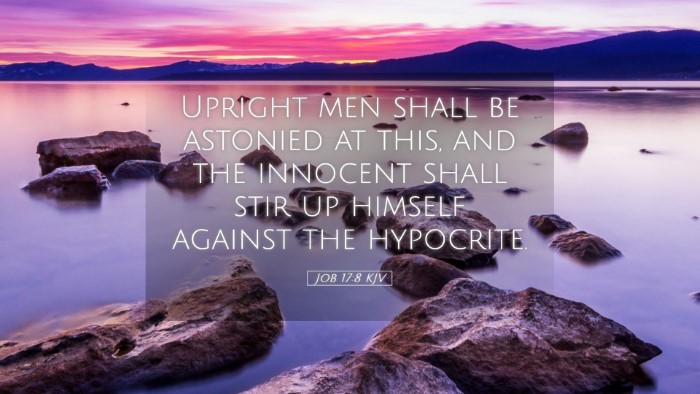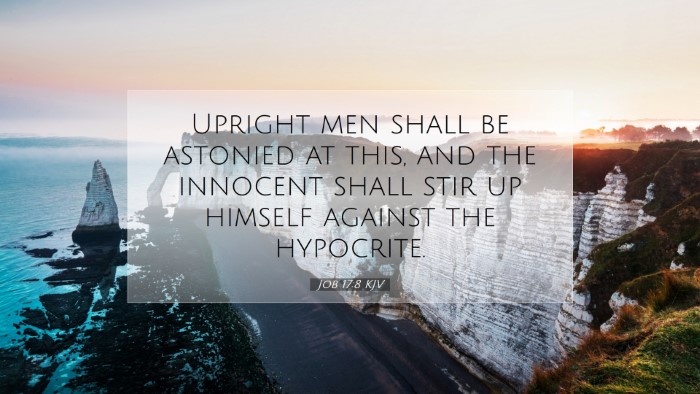Old Testament
Genesis Exodus Leviticus Numbers Deuteronomy Joshua Judges Ruth 1 Samuel 2 Samuel 1 Kings 2 Kings 1 Chronicles 2 Chronicles Ezra Nehemiah Esther Job Psalms Proverbs Ecclesiastes Song of Solomon Isaiah Jeremiah Lamentations Ezekiel Daniel Hosea Joel Amos Obadiah Jonah Micah Nahum Habakkuk Zephaniah Haggai Zechariah MalachiJob 17:8
Job 17:8 KJV
Upright men shall be astonied at this, and the innocent shall stir up himself against the hypocrite.
Job 17:8 Bible Commentary
Commentary on Job 17:8
Text of Job 17:8: "Upright men are appalled at this, and the innocent stirs himself up against the godless."
Introduction
The Book of Job grapples with profound themes of suffering, justice, and the character of God. In Job 17:8, Job speaks to the moral state of humanity in the face of overwhelming adversity, highlighting the response of the righteous to the presence and actions of the wicked. This verse stands as a pivotal reflection on the integrity and resilience of the innocent in their confrontation with evil.
Insights from Matthew Henry
Matthew Henry observes the deep anguish that Job experiences as well as the unwavering integrity of the righteous. He notes that the phrase "upright men" signifies those who live according to God's commandments. Such individuals are deeply distressed by the moral decay they witness in society.
Henry explains, “Upright men are greatly affected when they see iniquity triumphant, and their souls are vexed by the ungodliness of others.” This highlights the empathetic nature of the righteous, who are not only concerned with their own suffering but are acutely aware of the broader implications of injustice.
Insights from Albert Barnes
Albert Barnes provides a detailed exegesis, emphasizing that Job’s lamentation is not merely his own but one shared by all who seek righteousness. He articulates that the "innocent" person, in facing the unjust, is compelled to rise up - an act that may refer to both a physical and moral uprising in response to the godless.
Barnes remarks, “This implies a holy indignation, a determination to resist the wrong, and a call to action among the righteous who, confronted with despair, feel the urge to stand firm and challenge the wickedness of the world.” Thus, the statement underscores the active role that the innocent must take in confronting the scourge of evil.
Insights from Adam Clarke
Adam Clarke, in his commentary, elaborates on the emotional and social dynamics encapsulated in this verse. He notes the stark contrast between the upright and the godless, revealing the spiritual and moral anguish that the righteous experience as they witness the impunity with which the wicked act.
Clarke asserts, “The just man is horrified by the evil around him, and his horror is a testament to his purity of heart. This visceral reaction against sin is a core aspect of what it means to be righteous.” He reinforces the idea that such reactions are not passive; they awaken a resolve within the innocent to strive for justice.
Theological Implications
Job 17:8 raises significant theological questions regarding the nature of suffering, divine justice, and human integrity. The appalled reaction of the upright appeals to the timeless struggle between good and evil, pressing a larger narrative within the Scriptures.
- The Reality of Suffering: The verse contributes to the understanding that suffering is often intertwined with the existence of injustices in the world. The presence of the righteous amidst suffering offers a profound commentary on the moral fabric of society.
- The Role of the Righteous: Those deemed innocent bear a responsibility to confront injustices, aligning with biblical calls to advocate for the powerless and fight against wickedness.
- Hope and Resilience: Job’s resolve to speak against godlessness indicates an enduring hope among the upright. It shows that even in despair, they possess the instinct and duty to stand for righteousness.
Conclusion
Job 17:8 serves as a powerful reminder of the struggles that face those who seek to live upright lives in a world filled with evil. Through the insights of Matthew Henry, Albert Barnes, and Adam Clarke, we recognize that the righteous are not only hurt by the wickedness around them but are called to respond actively against it. Their horror at injustice becomes fuel for action, symbolizing a profound theological truth—the resilience of the human spirit in the face of adversity, grounded in a commitment to righteousness.


